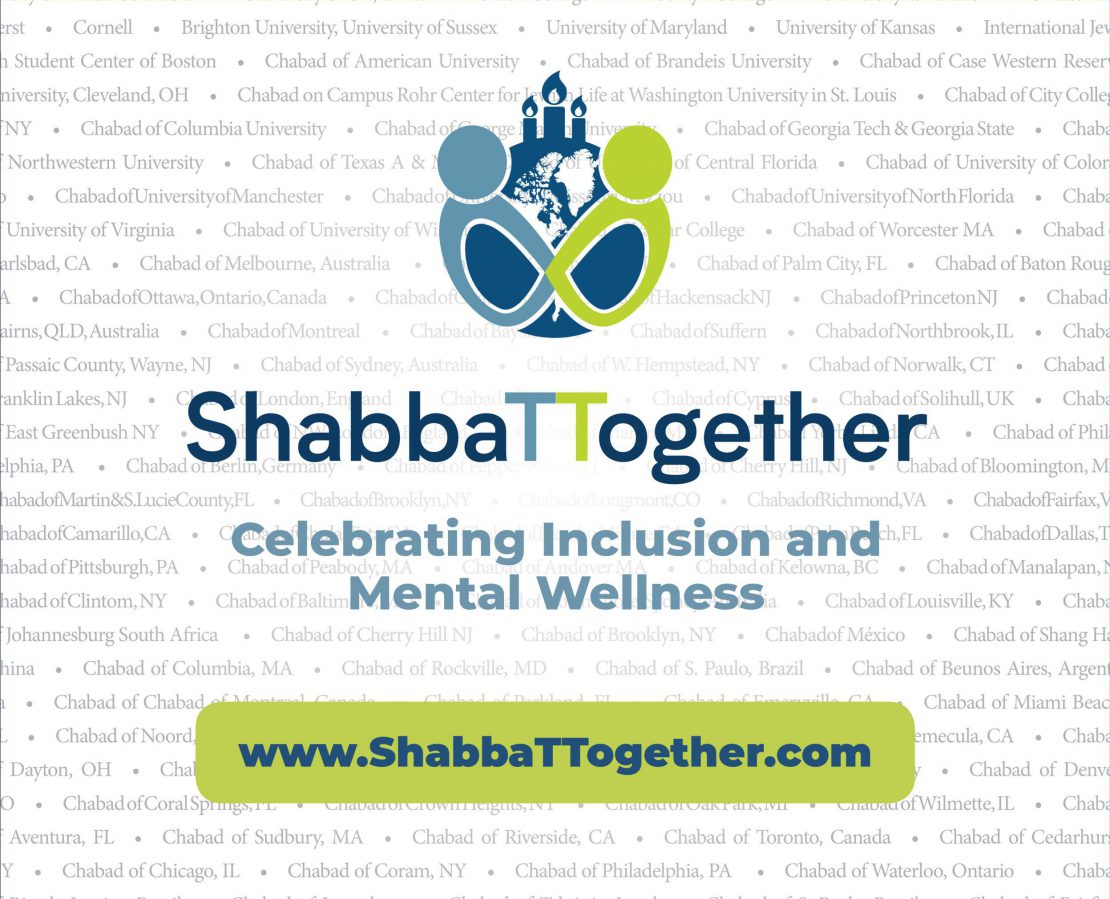An accessible Sukkah Mobile in Arkansas, sign language interpreters at Chabad events in Alabama, and in Virginia, a lowered bimah that allows people in wheelchairs to be called up to the Torah. These are just a few of the accomplishments of the Ruderman Chabad Inclusion Initiative (RCII). Established in 2014, the initiative is a partnership between Chabad and the Ruderman Family Foundation to create a welcoming and inclusive environment in Chabad centers around the world.
“We shouldn’t exclude people, or their families, because there is a child, or a member with a disability. That’s what this initiative is about, and it fits perfectly with Chabad values,” says Jay Ruderman, the foundation’s president.
RCII has reached five million people with programs such as ShabaTTogether, a global Shabbat for mental health and disability awareness. “It opened up a whole new world to me,” says Menucha Cooper, director of Chabad of Malvern, Australia. “Inclusion doesn’t mean just letting people have a seat at the table. It means involving people as a part of the community.” The Coopers installed a ramp at their synagogue because of the initiative.
In Palm Beach, Florida, the Chabad community came together to sponsor a small, “Inclusion Torah” that can be more easily held. At University of Pennsylvania, Rabbi Ephraim Levin established an Active Listening Club that trained five hundred Penn State students to support peers struggling with their mental health. And in Israel, RCII helped get funding to provide similar training to directors of CTeen and Chabad on Campus.
The initiative also highlighted Chabad teachings and Torah classes that promoted messages of inclusion, subsidizing books on the subject for children and adults, as well as music, educational videos, and even a traveling street mural.
Executive Director of the Ruderman Family Foundation Shira Ruderman looks forward to continued growth. “We are so proud of our partnership with Chabad. A partnership that allowed us to be creative and see that the sky’s the limit for us.” The largest ShabbaTTogether yet is coming up on February 12th. 1,000 communities will implement the initiative, either via ‘ShabbaTTogether @home’ packets, or at socially-distanced in-person events. Through games, discussion prompts, and sharing lived experiences they will discuss ways to bring mental health awareness and inclusion into their community.
With mental health struggles coming to the fore especially over the last months of pandemic and lockdowns, RCII has committed to increase awareness and support for those struggling with mental health. They will host workshops and trainings to empower shluchim to provide mental health support, and suicide prevention and postvention in their communities.
RCII is a project of Machne Israel, Chabad’s educational and social services division “What the Rebbe taught all of us is not only to be tolerant, but to be accepting and loving with others, regardless of their station,” says Machne Israel Chairman Rabbi Yehudah Krinsky, “just to be like you would be with members of your own family, because we are all one family.”

Deborah L Gilden
These initiatives are amazing. Yasher Koach. Are there large print sefarim or online sefarim (Feldheim. Artscroll, Chofetz Chaim, etc) other than the siddur which is available via apps. Many of us struggle to read regular print. Thanks
sarah kranz ciment
Hi Deborah,
Yes – there is a wonderful organization that makes large print siddurim and more upon request. Please email me at sarah@rcii.org and I am happy to give you more information.
Y Oliver
Inclusion is such a vague and easily abused term. If it means enabling physical disabled people to enter shuls, that’s fantastic. However, when you start talking about mental health, it can get very vague because the definition of that has been grossly expanded by the medical industry in the interests of promoting their drugs. If this is about pushing questionable drugs on people, then it’s really just a Trojan Horse for Big Pharma to use Chabad for profit.